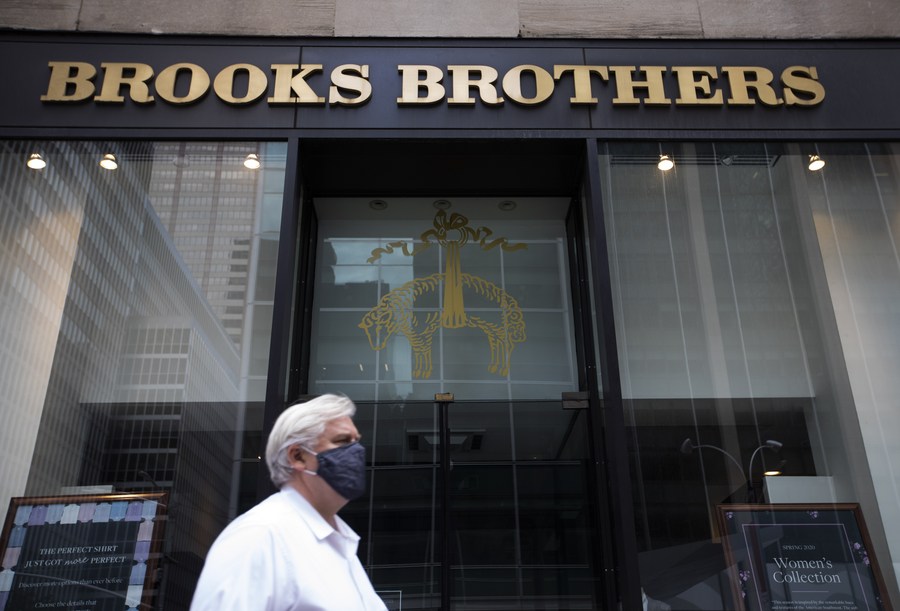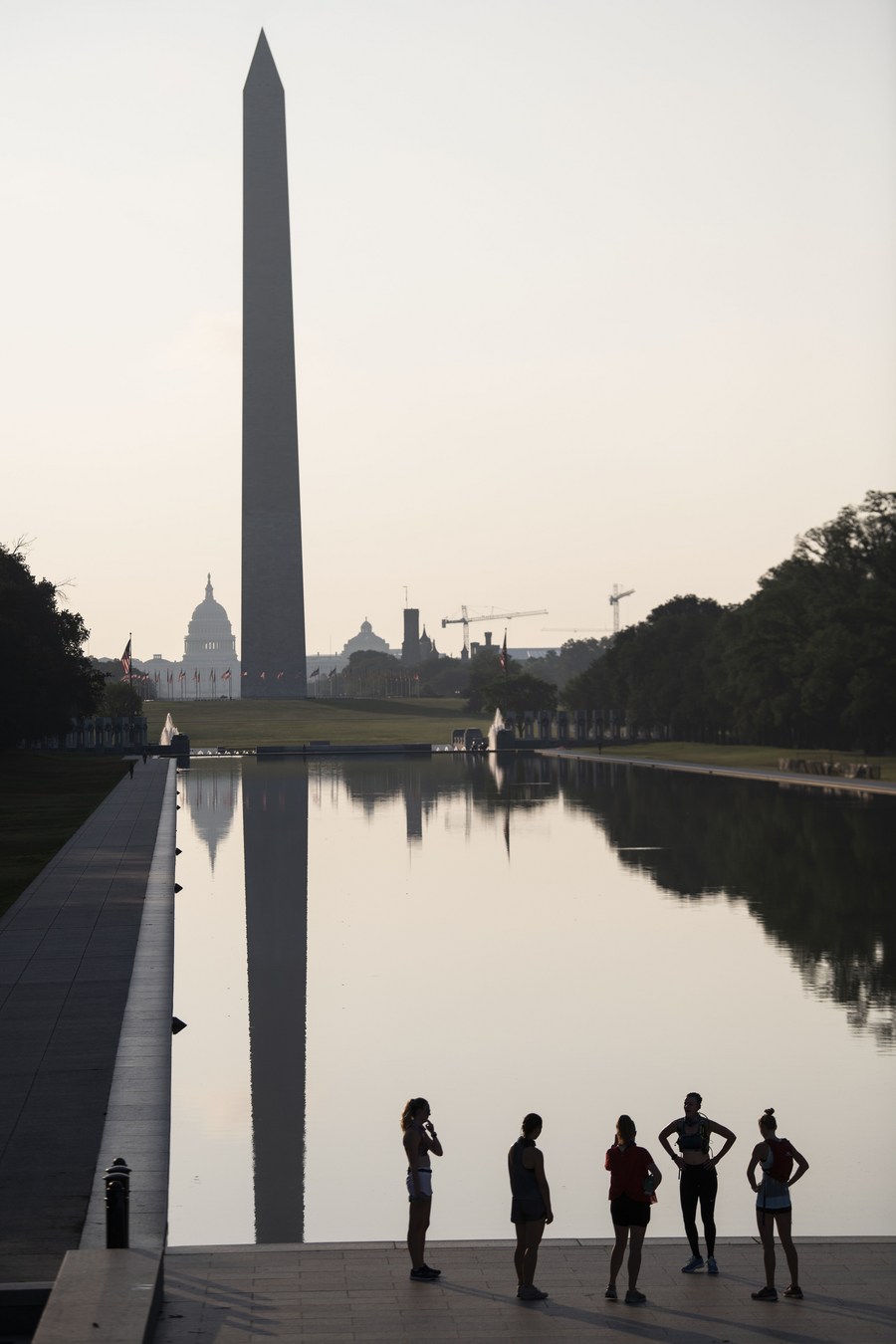
A pedestrian walks past a Brooks Brothers retail store in Manhattan of New York, the United States, July 8, 2020. Brooks Brothers, one of the oldest apparel retailers in the United States, filed for bankruptcy protection on Wednesday, as the coronavirus pandemic continues to impact businesses. (Xinhua/Wang Ying)
The total number of people claiming benefits in all programs for the week ending June 20 was 32.9 million, an increase of 1.4 million from the previous week.
WASHINGTON, July 10 (Xinhua) -- The number of initial jobless claims in the United States continued to drop last week, as some states paused or partially reversed reopening efforts amid resurgence in COVID-19 cases.
In the week ending July 4, the number of Americans filing for unemployment benefits decreased by 99,000 from the prior week to 1.3 million, the Labor Department reported Thursday.
The latest data marks the 13th weekly decline in a row but still a historic high. So far, a staggering 48 million initial jobless claims have been filed over the past 15 weeks, indicating the mounting economic fallout of COVID-19.
The new report also showed that the four-week moving average, a method to iron out data volatility, decreased by 63,000 to reach 1.4 million.
The advance seasonally adjusted insured unemployment rate was 12.4 percent for the week ending June 27, a decrease of 0.5 percentage points from the prior week's revised rate, according to the report.

People are seen near the Lincoln Memorial Reflecting Pool in Washington, D.C., the United States, July 8, 2020. (Xinhua/Liu Jie)
Claims under the Pandemic Unemployment Assistance, a federal program, also totaled over 1 million, an increase of nearly 42,000 from the previous week, the report showed. The program provides benefits to independent contractors or the self-employed, who are not eligible for regular state programs.
The total number of people claiming benefits in all programs for the week ending June 20 was 32.9 million, an increase of 1.4 million from the previous week, according to the report.
Several U.S. states, mostly in the South and the West, have recently seen an uptick in COVID-19 cases, and some of them have paused or partially reversed reopening efforts, raising uncertainty over the prospect of economic recovery.
Michael Hicks, director of the Center for Business and Economic Research at Ball State University in Indiana, told Xinhua via email that it is likely economic activity will slow in the short run, whether or not state or local governments take action.
"Large reductions in spending at restaurants, bars, retail outlets and amusement centers occurred prior to closings across most of the nation," Hicks said. "So, it is the presence of the disease rather than limited government shut downs that has slowed the economy deeply in second quarter."

People are seen by the road in Burlingame, California, the United States, July 4, 2020. (Photo by Li Jianguo/Xinhua)
Wells Fargo Securities on Thursday revised down 2020 U.S. real Gross Domestic Product (GDP) growth forecast "as a result of localized pauses/reversals in the re-opening process," noting that the recent acceleration in COVID-19 cases is a "serious downside risk" to the recovery.
In the Wells Fargo Economics Monthly Macro Manual, the company projects the U.S. economy to contract by 6.1 percent in 2020, 0.3 percentage points lower than the last forecast.
More than 60,000 new COVID-19 infections were reported across the United States on Wednesday, dwarfing the single-day tally of any other nation, according to a report from The New York Times.
A tally by Johns Hopkins University showed that as of Thursday evening, more than 3.1 million COVID-19 cases have been reported in the United States with the death toll surpassing 133,000.
The recent spike in cases is "already impeding the recovery, with states postponing re-openings or reversing recent re-openings, and with a significant increase in overall uncertainty and political polarization," said Jeffrey Sachs, an economics professor at Columbia University. ■



